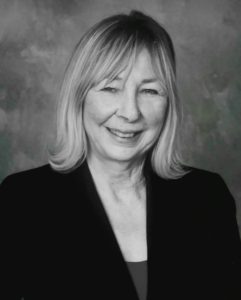Leslee Brown
 Addiction Therapist, Addiction Services of Eastern Ontario
Addiction Therapist, Addiction Services of Eastern Ontario
Recreation and Leadership – Class of 1981
Leslee Brown credits her parents and their commitment to community for her long career helping those suffering from alcohol or drug abuse.
“My mom and dad were very active in the community, so I learned volunteerism from them,” she says. “My dad was a war veteran and a very kind and giving man. He owned a car dealership and he loaned people vehicles for funerals if they didn’t have a car themselves and he provided cars to deliver food baskets to the needy at Christmas.
“I remember him telling us kids about sharing what you have and not being judgmental about other people because you have no idea what they’ve been through. I’ve never forgotten that, about giving back and serving others.”
Brown has been giving back, professionally and personally, ever since she graduated from Algonquin College’s Recreation and Leadership program in 1981. At that time she considered going on to take a psychology degree at the University of Ottawa, but when her father asked her to help him take care of her ailing mother, she returned home to Cornwall.
“It meant a lot for me to come home and take care of my mom,” Brown recalls. “My dad needed help and I was very attached to the community, so it was an easy decision to make and I’ve never regretted it. It was where I was supposed to be.”
So it seems. Brown found occasional part-time work, including as a counsellor at a residential Community Resource Centre affiliated with the Cornwall Jail. She got her first experience in helping men who’d committed crimes while under the influence of drugs or alcohol.
“It was like nothing I’d ever experienced before,” she says. “I learned for the first time about the psychological sources of addiction, how we use drugs or drink as a way to cope with the pain of our lives, physical or mental. Prisoners took drugs or drank because they were in pain or coping with some trauma or even to relieve boredom.”
The training Brown received in the Recreation and Leadership program has had a “huge impact” on her career. “The basics of a lot of what I do were instilled at Algonquin College and I still use them today with my clients.”
For instance, Brown draws on visualization techniques she learned from her psychology professors to help clients learn to refuse someone who’s offering drugs. Long-ago lessons in self-evaluation methods from classroom feedback sessions are still used to help clients mentally prepare for job interviews.
“When you think about it, that’s what counselling is – giving feedback to people you’re trying to help. We guide them to figure out what they need to do to change their lifestyle. Some people need rehabilitation and others need habilitation – to be taught fundamental skills they lack, often from childhood. We don’t treat alcoholics or drug addicts. We treat people.”
Brown is obviously good at giving feedback. Since that Cornwall Jail job, she’s established a career that has earned her a stellar reputation as an addiction therapist and counsellor. In the 1980s, she continued to develop her professional interest in addiction by taking numerous courses in the study of addiction, which was a relatively new field at the time. In 1987, she was hired by the Cornwall General Hospital Detoxification Centre. In 1990, she took the position she currently holds with the Cornwall Community Hospital as an Addiction Therapist in both inpatient and outpatient care.
Outside that setting, Brown has for the last 20 years facilitated the Back on Track Remedial Measures program for people convicted of drinking and driving. She has also been a long-time volunteer with the St. Vincent de Paul Food Bank and a board member with Cornwall’s local shelter for women and children. Each year, she canvasses for the Heart and Stroke and Arthritis societies. In 2019, Brown was appointed to the Council of the College of Kinesiologists of Ontario.
Does Brown have any advice for a young person considering a social service career?
“You have to be realistic about what you can accomplish and you have to take the best care of yourself. Yes, you need compassion, but you also need to develop patience and tolerance and resilience, especially resilience, within yourself.”
And why would she recommend it as a career?
“It can be a tough job trying to help people who often feel hopeless, but when you see someone you’ve worked with make a breakthrough, maybe turn their life around, that’s the best feeling in the world. That’s why I come to work every morning.”